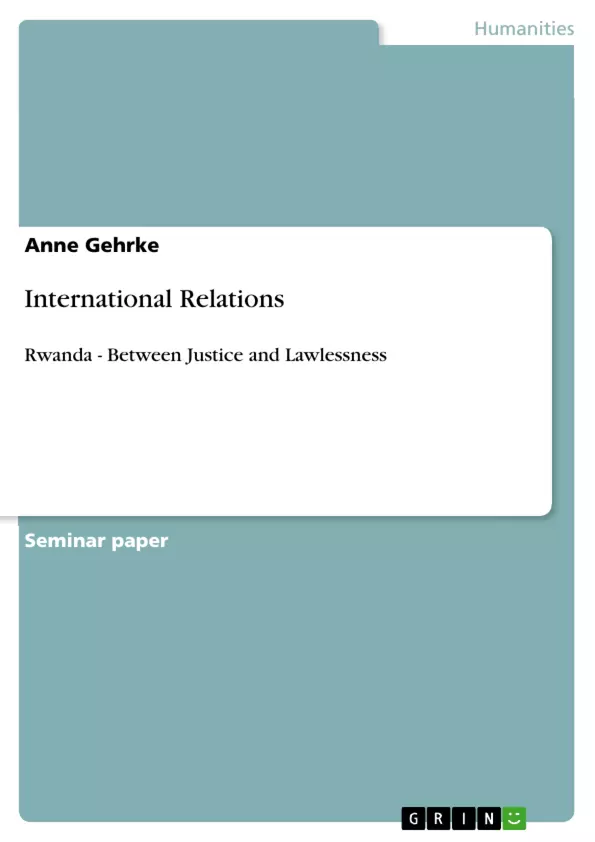Still genocide in Africa has not received the same attention as genocide in Europe or in another part of the world.
I would like to discuss why genocide is so elusive. Therefore I use the example of genocide in Rwanda in 1994 when around one million Tutsis and moderate Huts were killed during a period of only 100 days.
Such a large amount of people in such a short time demands a good preparation and organisation. That makes it very difficult for the justice to find the right preparators, especially after the ending of the war – the so called ‘post-conflict’ situation and there are a lot of new factors which can increase a new situation of violence.
After a short definition what is genocide I will focus on the conflict in Rwanda and emphasise how the International Crime Court or rather the International Criminal Tribunal for Rwanda is working especially when it’s about post-conflict justice and which difficulties they have when it is about judgement in a genocide-case.
[...]
Inhaltsverzeichnis (Table of Contents)
- Introduction
- Genocide in Rwanda
- Definition of Genocide
- Genocide in Rwanda
- Justice
- The International Crime Court
- International Criminal Tribunal for Rwanda (ICTR)
- Problems with Justice
- Conclusion
Zielsetzung und Themenschwerpunkte (Objectives and Key Themes)
This paper aims to explore the complexities surrounding the Rwandan genocide of 1994, focusing on the challenges of defining and prosecuting genocide in post-conflict situations. It examines the difficulties in establishing justice and accountability given the scale of the atrocities and the involvement of a large number of perpetrators.
- Definition and challenges of defining genocide
- The Rwandan genocide: context, scale, and organization
- International justice mechanisms and their limitations
- Obstacles to achieving justice in post-conflict settings
- The role of the international community
Zusammenfassung der Kapitel (Chapter Summaries)
The introduction discusses the limited attention given to genocide in Africa and the difficulties in defining and prosecuting it. The first chapter provides a definition of genocide and its historical context. The second chapter details the Rwandan genocide of 1994, outlining the events leading up to it, the scale of the killings, and the role of various actors. The third chapter begins the discussion of justice mechanisms, focusing on the International Criminal Tribunal for Rwanda and the challenges faced in bringing perpetrators to justice in a post-conflict environment.
Schlüsselwörter (Keywords)
Keywords: Rwandan genocide, genocide definition, international justice, International Criminal Tribunal for Rwanda (ICTR), post-conflict justice, accountability, mass violence, Hutu, Tutsi, international community response.
- Quote paper
- Anne Gehrke (Author), 2007, International Relations , Munich, GRIN Verlag, https://www.hausarbeiten.de/document/121650


